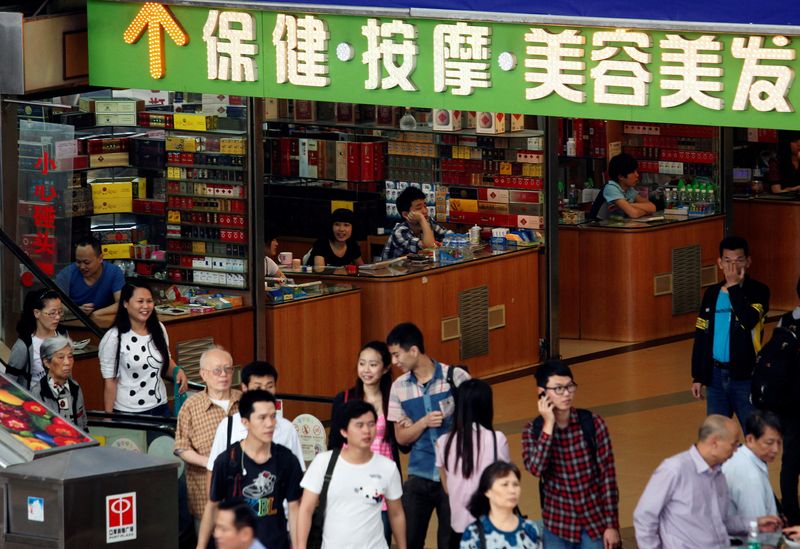BEIJING (Reuters) – Millions of government workers across China received surprise pay hikes this week, people said, as Beijing seeks to boost spending to shore up the slowing economy.
Taken together, if all 48 million people were included in the public sector workforce, the immediate payout would amount to a one-time hit to the economy of about $12 billion to about $20 billion, under the terms described to Reuters.
The last time China publicly announced a nationwide salary increase for civil servants was in 2015, when the government raised local civil servants’ salaries by more than 30% to fight corruption and boost consumer purchasing power.
The State Council Information Office, which speaks for the Chinese government, did not immediately respond to a request for comment.
This time, monthly wages for government workers were increased by an average of about 500 yuan ($68.50), according to people contacted by Reuters or posted on social media. Some young government workers reported monthly pay increases of nearly 300 yuan ($41).
In many cases, the pay increases for civil servants and public sector workers were retroactive to July and came in a single, bonus-like payment, people familiar with the matter said.
“Beijing’s strategy appears to be to encourage consumption among higher-spending people,” said Xu Tianchen, senior economist at the Economist Intelligence Unit.
“So far we have seen cash handouts to the poor and salary increases in the public sector. Low-income groups tend to spend a higher proportion of their income, while for this reason civil servants are probably more likely to spend their higher social benefits than employees of private companies.”
The widespread pay hikes affecting teachers, police officers and civil servants across China were first reported by Bloomberg.
The move was neither announced nor described in detail by Beijing. It was not immediately clear how the increase would be funded or what the total cost would be.
As Reuters reported, Chinese leaders agreed last month to record a higher budget deficit this year, reaching 4% of gross domestic product (GDP).
That would support efforts to hit an economic growth target of about 5% for 2025, despite the strain of an ongoing housing crisis, falling prices and the prospect of higher tariffs on exports to the United States.
Government workers began posting about the pay hike on social media on both sides of the Lunar New Year holiday.
“It will be a good thing for everyone if we come out of deflation,” one person from Jiangsu posted on Weibo (NASDAQ:).
Others were critical. “How come you boost consumption by appealing to a small group of officials?” said a Hubei-based Weibo user.
A record 3.4 million young Chinese took the civil service exam last year, lured by job security at a time when the private sector is under pressure.
The number of applicants for public service has tripled since 2014, even as some local governments have struggled to pay wages, cut compensation and, in some cases, cut jobs.

A group of Beijing city workers were told without further details on Thursday that they would receive a pay rise of at least 500 yuan a month, one of the workers, who spoke on condition of anonymity, told Reuters.
The good news prompted the team to go to a restaurant to celebrate, the person told Reuters. “This should be helpful in boosting consumption,” she said.





